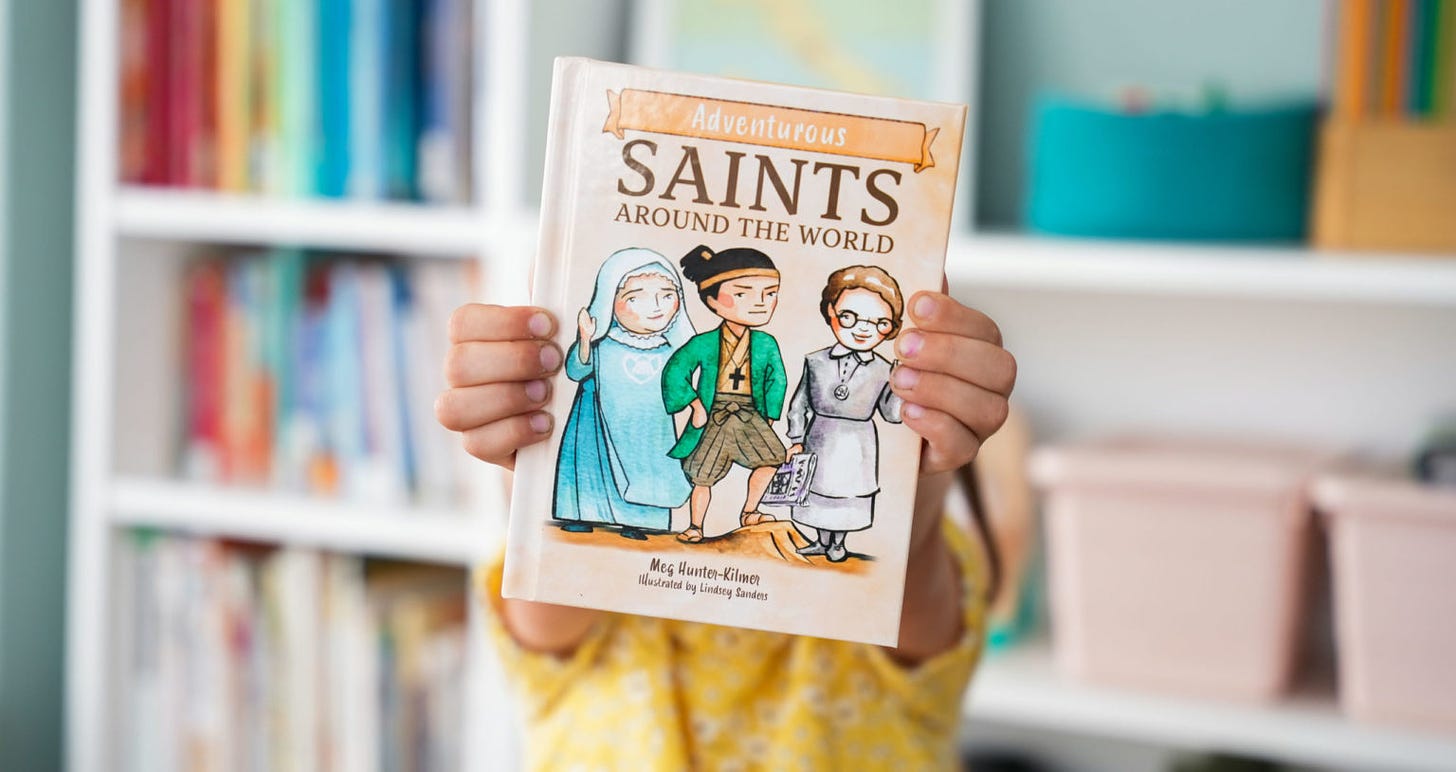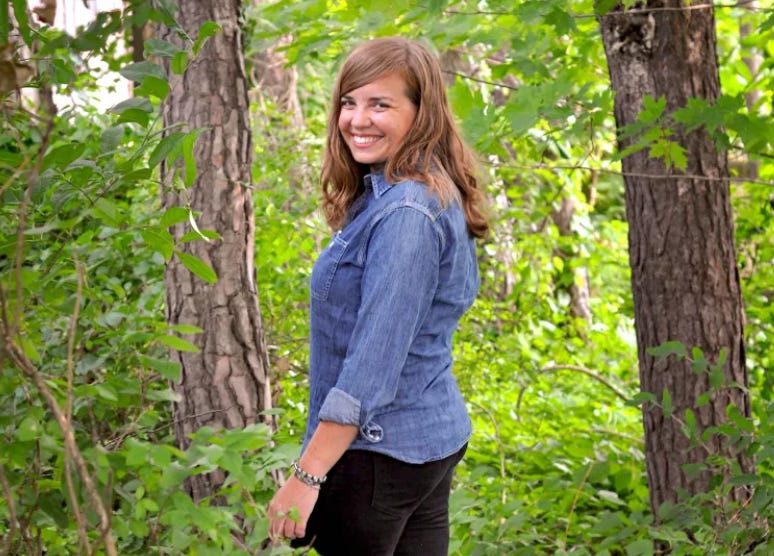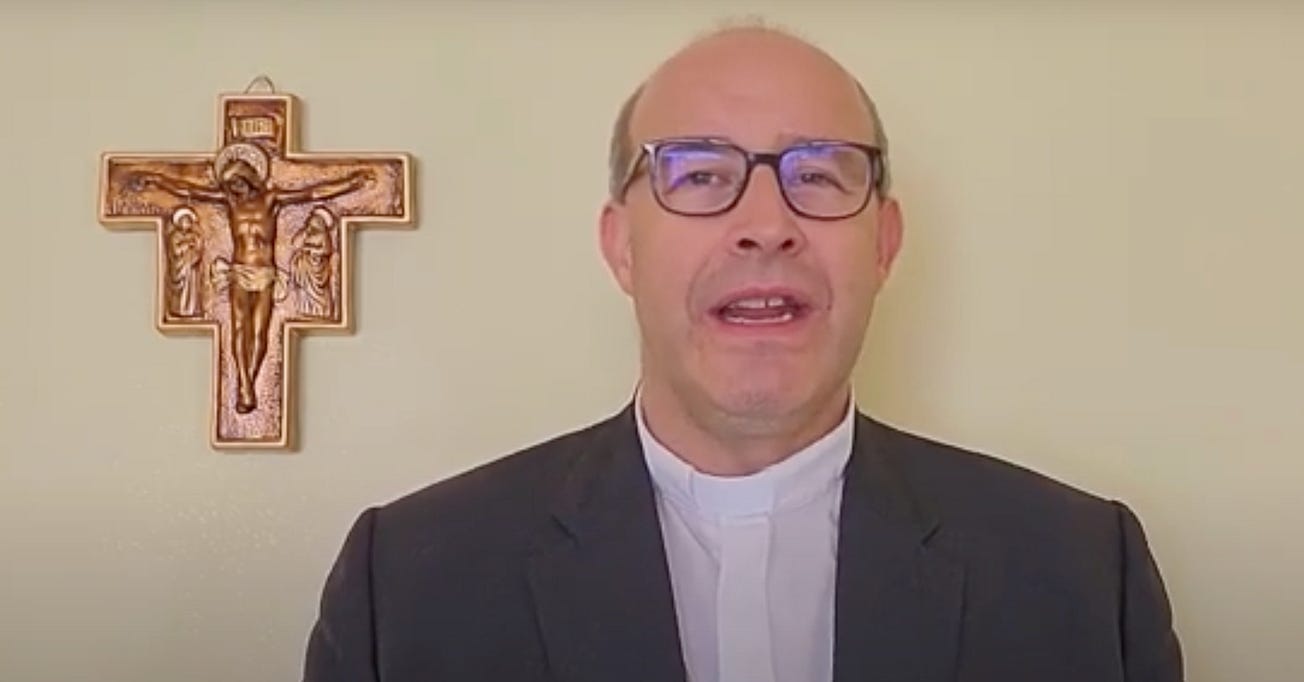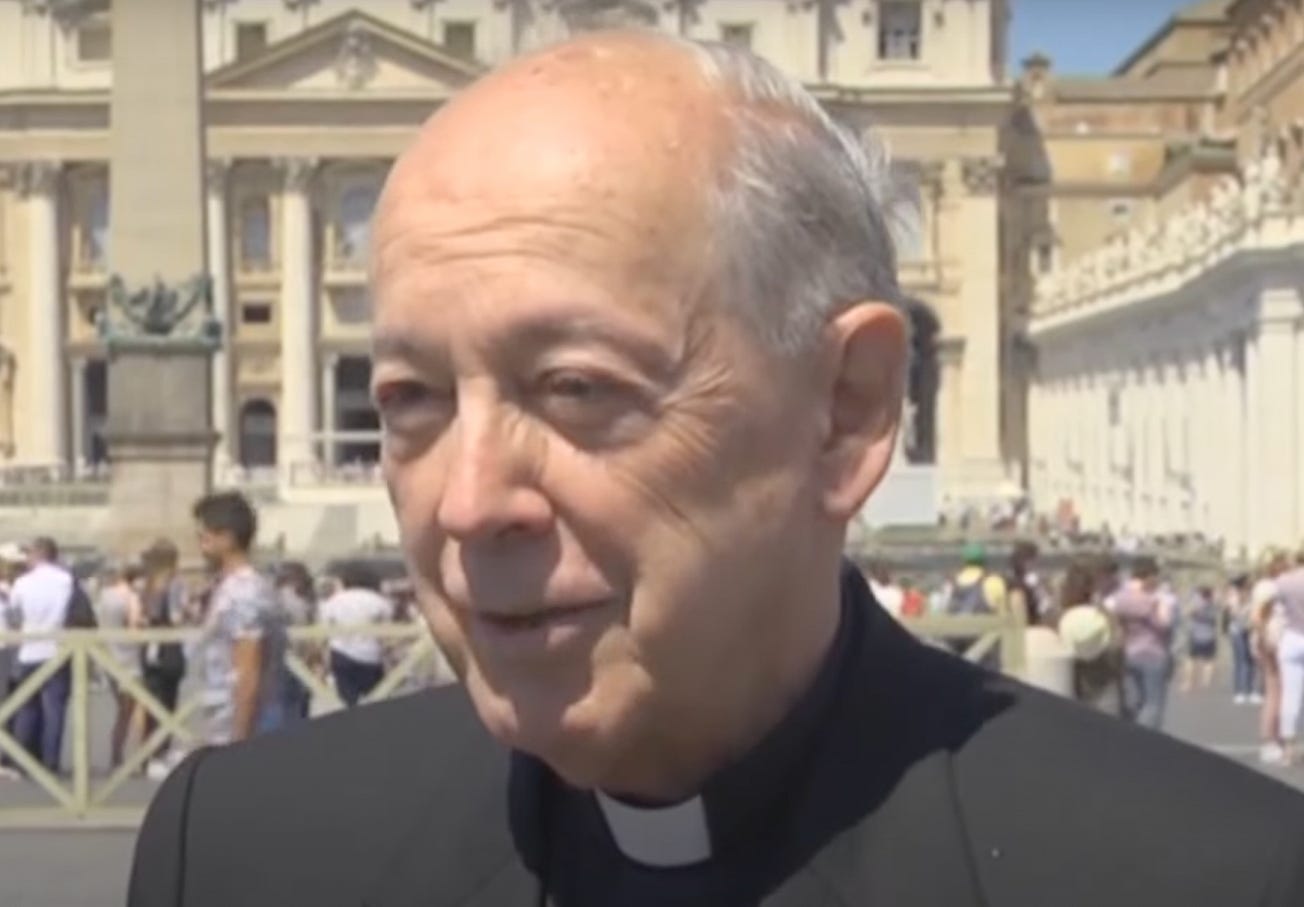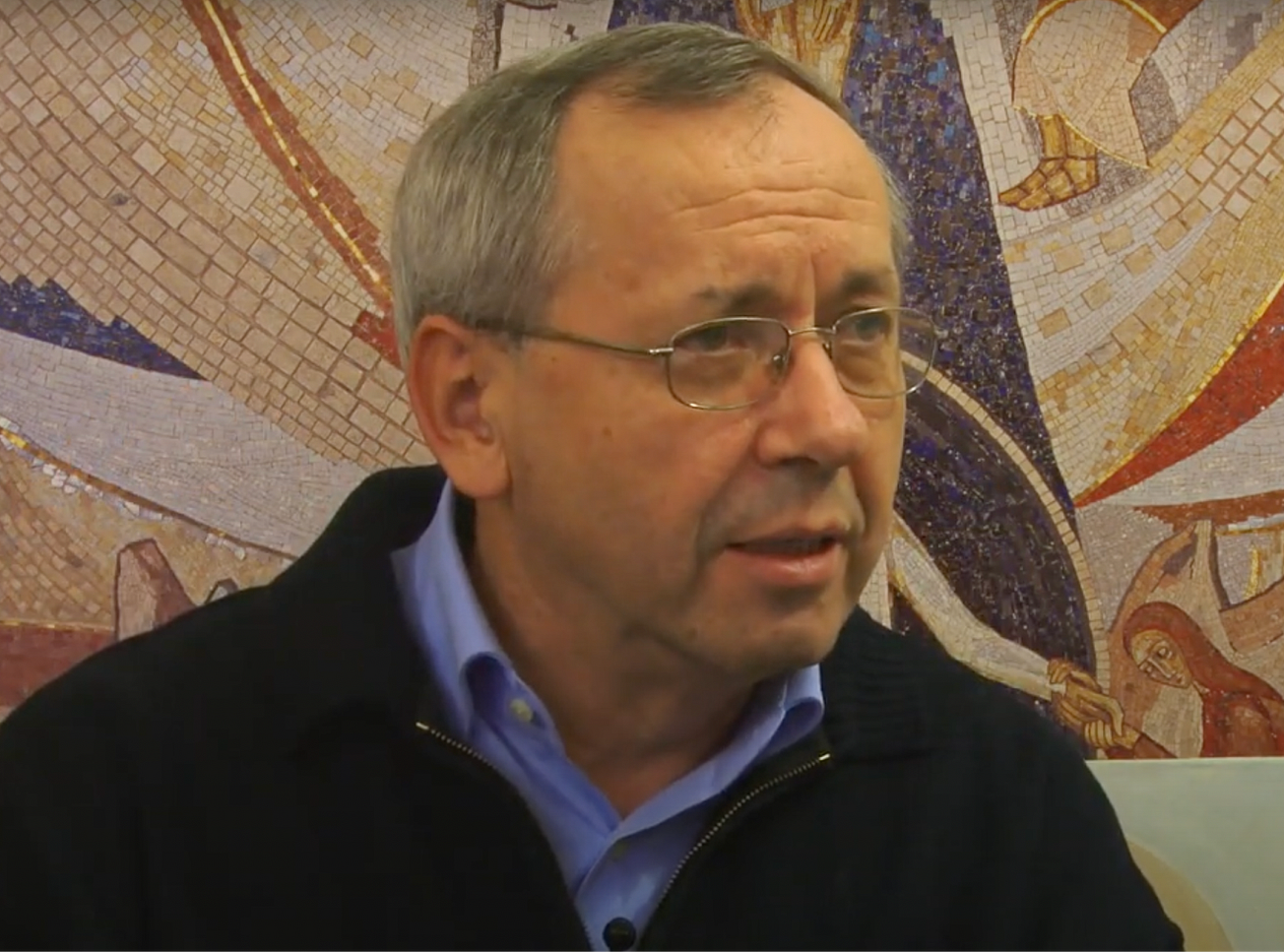When I pick up a new picture book, to read to my children aged four, two, and just five months, I usually prompt a lot of questions. And when my kids haul over Meg Hunter-Kilmer’s compendium of “Saints Around the World,” I know I need to be ready for questions about geography, kingship, and when it’s okay to break the rules.
Kilmer recently released new, shorter tellings of her saint stories, meant for even smaller kids — and I wanted to know how she approached translating these vivid lives for tiny children.
Meg Hunter-Kilmer joined Notre Dame as a fellow for the Sullivan Family Saints Initiative, and works in campus ministry. Before settling in at Notre Dame, she spent 12 years living out of her car and speaking about the Good News as a “hobo for Jesus.” Before that she worked as a teacher and spent time in religious life before discerning out. In her own words: “I am an author and a speaker and a lover of Jesus.”
This interview has been edited for length and clarity.
You've been telling stories about saints for a long time. What changed when you were trying to deliberately do that for children?
From the beginning of telling the saint stories I was telling them to children, I love children and I'm around children all the time. One of the easiest ways to corral children is to tell them a story, so sometimes to distract people from a tantrum, sometimes while their parents were making dinner, I would just say, who wants to hear a story? And I would tell these stories to kids.
When I sat down to write my first children's book, I was a little bit wary because I had been writing saint stories entirely for adults and I was like, “I don't know what my voice is when I'm writing for children.”
And then I realized I just needed to write down the things that I say out loud when I would visit children and tell them these stories.
When I tell stories to children, I'm always very careful not to traumatize them because our saint stories are often horrific, and some children really resonate with that and other children hear a story and think if you love God, people will pluck out your eyeballs.
I’m figuring out a way to be authentic to the story, to explain the reality of these saints and their struggles and their suffering, but doing it in a way that doesn't terrify children, that their parents are going to get divorced because Blessed Marie Clementine Anuarite Nengapeta’s parents got divorced. Finding that balance of speaking into the brokenness without terrifying them was definitely a tricky thing.
And when you told the stories in person, you have the benefit that you can see how kids are reacting. But when you’re passing these stories on for a parent to tell, to children you don’t know, how did you think about the range of parents and the range of their own comfort or familiarity?
I noticed you really highlight the pronunciation guides for saints, so parents can navigate languages they don’t know.
What else was meant to help a wide range of parents find a way to read this book?
We invited a number of different experts, for example, we had some trauma-informed therapists who were looking over the language.
In one case, I think it was St. Kateri, where I said “she never let it make her angry” and somebody responded, “No, anger is fine. Children need to know that anger is fine and anger is healthy.”
There are definitely some stories that we wrote where I knew some parents are going to be uncomfortable with us. We talk about Martin De Porres and how his parents were never married. When I read that to my niece as I was preparing the book, she said, “How did he get born if his parents were never married?”
I said, “I don't know, exactly” — because I don't.
And I just moved on. But my sister said afterwards that, “maybe you should take that part out.”
Here's the thing, your kids are eventually going to need to know that some people's parents aren't married. There are children who have never encountered someone with unmarried parents in their Catholic world who need to be told that there can be holiness in the midst of that.
I remember reading [about St. Martin De Porres from my] book one time and this little boy flung his hand in the air and he said, “My parents were never married!” And he looked at the other kids in the classroom, like, “You don't even know. Me and Martin, we're friends.”
And just seeing that was such a gift to me.
How do you think about sin when you put the name to it? I have a book in our home about Rose Hawthorne, and I omit her husband’s alcoholism. When I read it with my kids, I say, “He didn't treat her well.” But there are kids whose parents are alcoholics.
I think of the way I’ve heard you tell the story of Blessed Laura Vincuña and I think of the little boy I know whose mom fled with him from domestic abuse, and might benefit from hearing her story talked about in terms of abuse, not just unkindness. How do you decide when to use the specific language of a sin?
Broadly speaking, I work around a lot of that language.
With St. Germaine, when I’m talking about her abuse from her stepmother, I didn't detail it, I just say, “She was very cruel.”
Then I break the fourth wall and I say, “I hope if someone is treating you very badly, that you will tell a grownup.” There are a couple of times when I'm just going to talk directly to [readers] and make sure that [they] are hearing this right: “Nobody should be treating you this way.”
There’s a pattern of telling stories about saints, particularly female saints, in which they are depicted as suffering quietly and never complaining.
How do you think telling children that something which might be a virtue in one life is not necessarily what's asked of you?
I think of St. Rafqa Pietra Choboq Ar-Rayès, who’s in “Saints Around the World,” she had her eyeball cut out—it wasn’t torture, it was a medical accident and she praised God for it because she loved suffering.
And I say most people don't experience suffering that way, but it can be helpful to know that this is one way that God can use your suffering.
I think part of the beauty of having this massive corpus of saints in front of you is that you can see this one saint who was tortured and never complained, and then you see St Eulalia and you’re like, “Oh, she would've punched someone in the throat if they tried to torture her. She was not there for this suffering-in-silence business.”
I love how big your book of saints around the world is, it gives a sense of the expansiveness of ways people have lived their lives as saints.
I'm curious how that makes you think about the language in the contemporary Church of vocation and discernment. It can feel like God is posing a question for you to answer with your life, but that there are only a narrow range of “official” answers.
How does telling the story of all these different saints make you think about that question of discernment and vocation?
I think that we do have this very narrow understanding of your life where it doesn't begin until you have given it away in some permanent and public way. And then you can figure out how to be holy. It’s absolutely not what the church teaches and not what the lives of the saints demonstrate for us.
It’s just been really healing for me to consider that God is a God of the journey and not merely of the destination and that he is at work in all of that uncertainty. God called you to the seminary and then called you out and it felt like a failure, but He was at work. The more that we see God's incredible creativity in the lives of the saints, there's this just wild variety of vocations.
You yourself are someone who hasn’t made one of those irrevocable vows, but by becoming a “hobo for Christ” you made a much weirder, much stronger choice for a big chunk of your life. Putting your life at the service of God day by day, not knowing where you would sleep or who you would be called to witness to… that’s a much riskier choice than I’ve ever made as a married woman.
How did you think about living your life on the road, telling people about Jesus? Did you think of yourself as taking a private, simple vow year to year?
No, it was always day to day when I felt like God was asking me to live out of my car. I thought it was going to be for two months and it was going to be like, “Oh, good job. You trusted me. That was a test and you passed. Here is a job and a house and a family and a community.”
Instead it was 12 years, and there was never a sense that it was permanent or even necessarily that it was long-term. I mean at a certain point it had become long-term, but anytime someone would ask me to do something more than a year out, I would be like, look, a year-and-a-half from now I could be married in Malaysia with twins. I don't know. I have no idea what my life is or what God is going to do
Jesus, you can do what you want!
If you want me to live out of a car until I'm 80, I will complain. I'll complain a lot, but I'm in. I am yours. Over the course of that decade plus, God was leading me into situations that I would never have chosen, and he was using them to bear incredible fruit.
Having seen that so much, it just becomes much easier to say yes to something unexpected and even unfortunate, even when you have no expectation that you will see any fruit because you're like, but I know what he's done.
I know what he's done in the past and I know who he is and I trust that he will remain faithful.
How would you suggest Catholic parents raise their kids to build up that trust muscle? Obviously Catholic parents don't always say, “How can I help my kid live out of a car for 12 years?”
But I really like your point that it’s not about guessing where God is going to call you to, but that sense of trust and willingness to go where he is calling.
I feel like so much of it is a matter of sharing your own personal testimony, sharing your moments of struggle and your moments of uncertainty, and the times when the rug was pulled out from underneath you and saying, well, and here's what God did in this. Here's what the Lord was accomplishing. Also acknowledging, you know what, honey, that's not something I have an answer to yet. I don't know why God allowed that. I haven't seen any fruit, but I know that most of those who loved Jesus didn't see any fruit on Holy Saturday and he was working.
The more that we're honest about that, about the moments of struggle and the fruit God has brought out and also the fruit that we don't yet see, the more children begin to view hardship with almost a sense of wonder, “What is God going to do through this?” I may not see it ever, but I know a God who raises the dead. And so I know that he's working through this flat tire. I know that he is.
For the parents reading your books, how do you think about taking on risk, letting the Holy Spirit work beyond what we ourselves would expose ourselves to when you're also responsible for someone vulnerable?
It's easier to open your door to a stranger when it's only you in the house, for instance. How can parents balance that sense of confidently putting themselves and their family at the disposal of the Holy Spirit versus saying, “I've got to stick it out in this job to put food on the table?”
I think so much of it is a question of rooting yourself in prayer. I find silent prayer absolutely essential for a life of following Jesus. And I know [for a parent] “silent” is a whole big word. But I also know that it's possible to eke out [silence] if it's a priority. It could mean Paw Patrol in the living room and you're locked in the bathroom, right?
If you are making time for silence, not just for prayer that we fill with noise, drowning out the voice of God, you can sit with the Lord and just say, I'm here and I want what you want,
I’m thinking of Blessed Anna Maria Adorni, who as a single mom began inviting the formerly imprisoned to live in her home to build up a community for them. And she's got a child living there.
You read that and you're like, “Oh my gosh, I'm not even a Christian at all.”
And maybe the Lord is speaking to you in that, and maybe he's really not. When you make that space in silence, even 15 minutes a day, which is 1% of your life, and you sit with the Lord, you begin to find just a degree of clarity
I'm really impressed how you tell the story of martyrdoms. It reminds me of how it's hard to make a movie about war that doesn't glorify war. I think it's hard to tell the story about martyrdom that doesn’t almost let the drama of the violence eclipse the person.
In your stories, it’s clear that some of these saints die, and die violently, but you don't linger on the descriptions.
Your stories feel like they’re about why the saint was willing to undergo this, not about the minutia of the killing. I know today, there can be a longing for a time of persecution as offering a kind of simplicity—I’m also thinking of one of Flannery O’Connor’s characters thinking “She could never be a saint, but she thought she could be a martyr if they killed her quick.”
How do we both honor the witness of the martyrs without envying or wishcasting ourselves into the simplicity of what was asked of them?
It’s sometimes very tempting to talk about the gruesome bits but the aim is to ask, Okay, what was it that made that possible? What were the years leading up to it such that when they were asked, would you rather die horrifically or deny Jesus? They're like, that's not even a question.
Almost nobody has made a martyr in a day. You are made a martyr from years and decades of dying to yourself again and again, St. Genesius is an exception. Every once in a while we get someone who just got zapped with grace, but we cannot count on being martyred because if we're not daily dying to ourselves, we'll not die for Jesus in the end. [Dying as a martyr] is only ever a crown placed on a life of white martyrdom.

